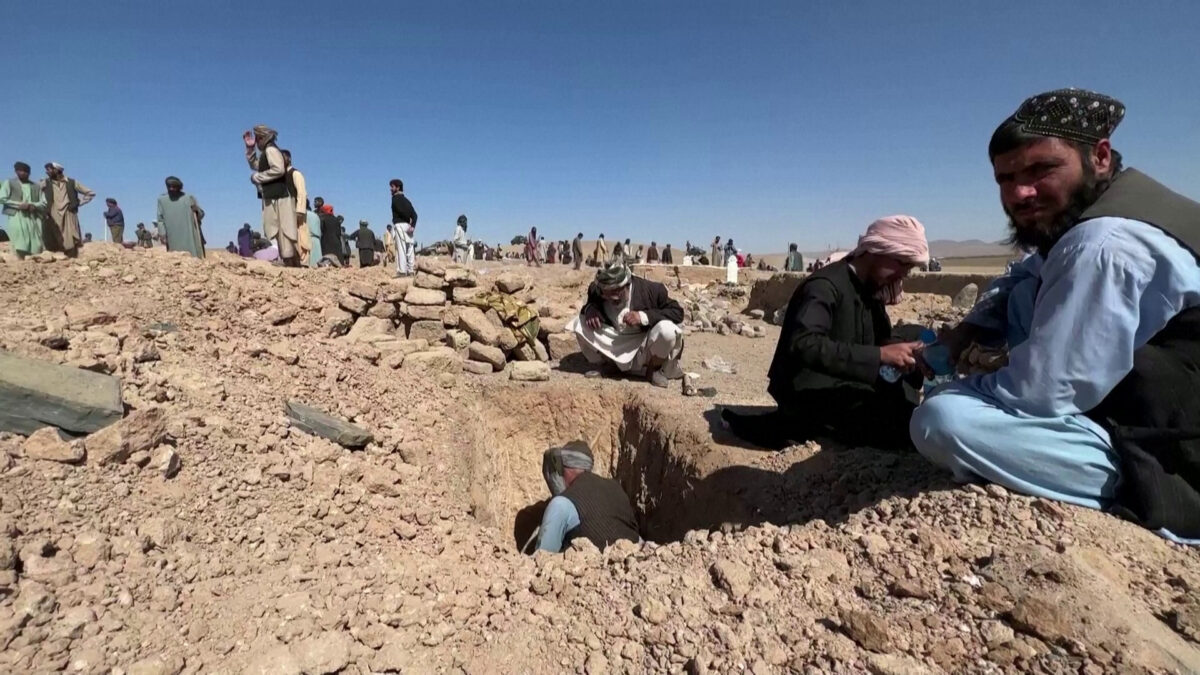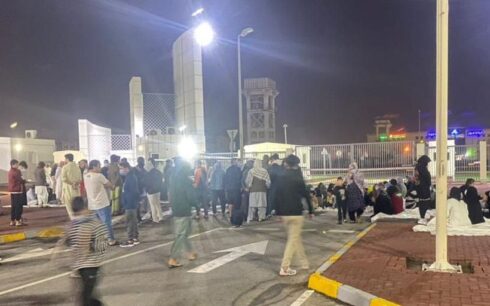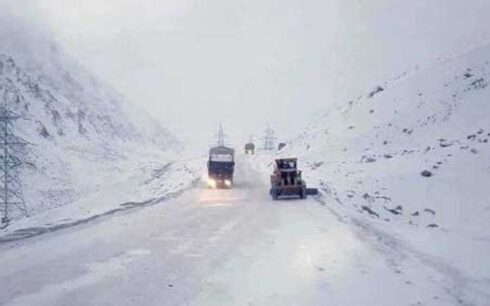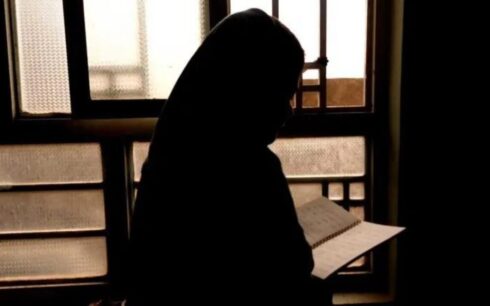Dozens of victims of last week’s deadly earthquake in Herat province in western Afghanistan were buried in mass graves on Tuesday, Taliban officials said, adding that relatives of many victims have not yet been tracked down.
On Saturday, an earthquake measuring 6.3 magnitude hit Herat province. The epicenter was in Zindajan district, which took the brunt of the quake. Entire villages collapsed, and over 2,400 people were killed. Another 2,000 were injured.
Taliban officials said Tuesday that relatives of some of the victims who died in the earthquake have not yet been found. Because of this, the unclaimed bodies were buried in mass graves.
Pari Gul, a Zindajan survivor, lost a number of relatives in the earthquake. She said the “earthquake happened and all of the rooms collapsed. We have tried to drag out the people trapped under the rubble with our bare hands.”
“I was in the house of my neighbor, when the earthquake happened. I came to take my daughters-in-law from the rubble. My daughters-in-law were asking me to drag out their daughters,” said Mah Gul, 55, a resident of Zindajan.
Many aid organizations and countries have sprung into action to provide lifesaving assistance to the survivors but concerns over unfair distribution of assistance continue to be reported, allegedly because of the Taliban’s interference in aid delivery.
Amnesty International urged the Taliban to consider the situation of the people affected by the earthquake and provide them with assistance without discrimination and based on international standards.
Zaman Sultani, Amnesty International’s regional researcher for South Asia, said that the organization calls on the “Taliban de facto authorities to ensure that rescue and relief efforts are carried out without discrimination and in a manner that is compliant with international human rights standards.
“It is critical that all assistance meets the needs of the most at-risk groups who often face compounded challenges in crisis situations, including women, children, older persons, and people with disabilities,” Sultani wrote in a report.
Mullah Abdul Ghani Baradar, the Taliban’s deputy prime minister for economic affairs, who is also leading a commission to address the challenges of the earthquake-affected people, said that the commission has been established to ensure aid is distributed to the victims transparently.
“The Islamic Emirate of Afghanistan [Taliban] is committed to rebuilding the destroyed residences whose number is between 1,000 to 1,500,” he said.
The European Union meanwhile said that it will provide €3.5 million ($3.7 million) in emergency humanitarian aid funding to the people affected by the “destructive” earthquake.
The UN Office for the Coordination of Humanitarian Affairs (OHCA) reported on Monday that more than 11,000 people have been affected by the earthquake.





